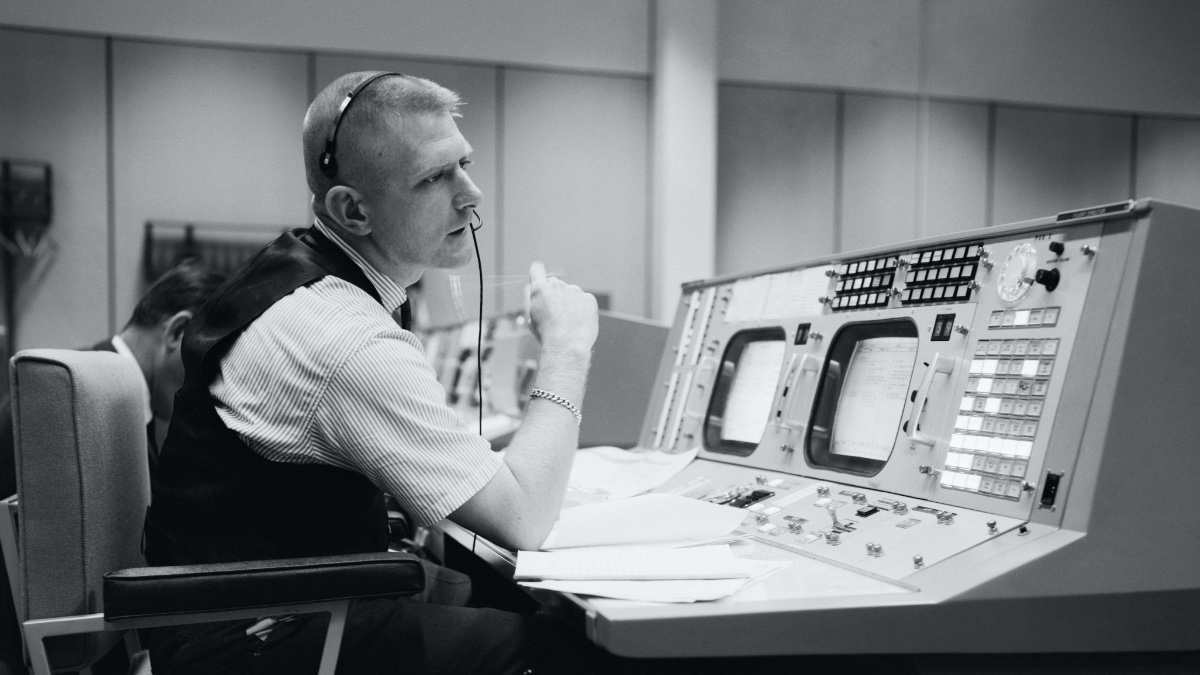On the afternoon of January 27, 1967, the crew of Apollo 1 — astronauts Virgil “Gus” Grissom, Ed White, and Roger Chaffee — were killed in a horrific accident. The men were sitting inside the sealed command module of their spaceship during a launch simulation when a fire broke out. Fed by the pure oxygen environment inside the cabin, the conflagration spread quickly. The astronauts didn’t have a chance.
The Monday morning after the accident, NASA Flight Director Gene Kranz — the person responsible for coordinating Flight Control during a mission — addressed his team. This is what he told them:
Spaceflight will never tolerate carelessness, incapacity, and neglect. Somewhere, somehow, we screwed up. It could have been in design, build, or test. Whatever it was, we should have caught it. We were too gung ho about the schedule and we locked out all of the problems we saw each day in our work. Every element of the program was in trouble and so were we. The simulators were not working, Mission Control was behind in virtually every area, and the flight and test procedures changed daily. Nothing we did had any shelf life. Not one of us stood up and said, “Dammit, stop!” I don’t know what Thompson’s committee will find as the cause, but I know what I find. We are the cause! We were not ready! We did not do our job. We were rolling the dice, hoping that things would come together by launch day, when in our hearts we knew it would take a miracle. We were pushing the schedule and betting that the Cape would slip before we did.
From this day forward, Flight Control will be known by two words: “Tough” and “Competent”. Tough means we are forever accountable for what we do or what we fail to do. We will never again compromise our responsibilities. Every time we walk into Mission Control we will know what we stand for. Competent means we will never take anything for granted. We will never be found short in our knowledge and in our skills. Mission Control will be perfect. When you leave this meeting today you will go to your office and the first thing you will do there is to write “Tough and Competent” on your blackboards. It will never be erased. Each day when you enter the room these words will remind you of the price paid by Grissom, White, and Chaffee. These words are the price of admission to the ranks of Mission Control.
This short speech, which became known as The Kranz Dictum, codified the team’s values. In the context of tragedy, the words “tough and competent” resonated deeply; they were still being used by NASA decades later. Some people involved with the subsequent moon landings have speculated that without the Apollo 1 accident and the ensuing toughening of standards, the overall project wouldn’t have succeeded.
The Kranz Dictum is an excellent example of effective leadership in action. It’s short and powerful, and as such, it’s worth examining. In the first paragraph, Mr. Kranz tells the team this isn’t somebody else’s problem; it’s our problem. We are responsible. Not you — as the leader, he’s in this too.
In the second paragraph, he tells them what they’re going to do about it: they will become tough and competent. But he doesn’t just leave it at the words “tough” and “competent;” he also tells them what these words mean. Clarity is key, since words can have different meanings for different people. In this context, “tough” isn’t about resilience or strength, it’s about accountability:
Tough means we are forever accountable for what we do or what we fail to do. We will never again compromise our responsibilities. Every time we walk into Mission Control we will know what we stand for.
“Competent” isn’t about merely doing a good job:
Competent means we will never take anything for granted. We will never be found short in our knowledge and in our skills. Mission Control will be perfect.
The bar isn’t set at good; it’s set at perfect. And perfection is hard work: it calls for continuous honing of knowledge and skills. Mr. Kranz reminds the team that lives are at stake; he explicitly ties the adoption of these values to honoring the sacrifice of the three astronauts.
The speech closes with this sentence:
These words are the price of admission to the ranks of Mission Control.
Here, he elevates the team from a mere workgroup to a sort of fellowship: a pact binds them. It is a privilege to be part of this group, and they pay a price to belong. The price? Being unfailingly tough and competent.
It’s easy to be dazzled by the incredible technology that made it possible for people to fly to the moon and back. But technology wouldn’t be of much use were it not for leaders like President John F. Kennedy and Gene Kranz, who inspire and coordinate the people who make large projects like Apollo happen. Their work isn’t rocket science — in fact, they use one of the oldest technologies around: language.
